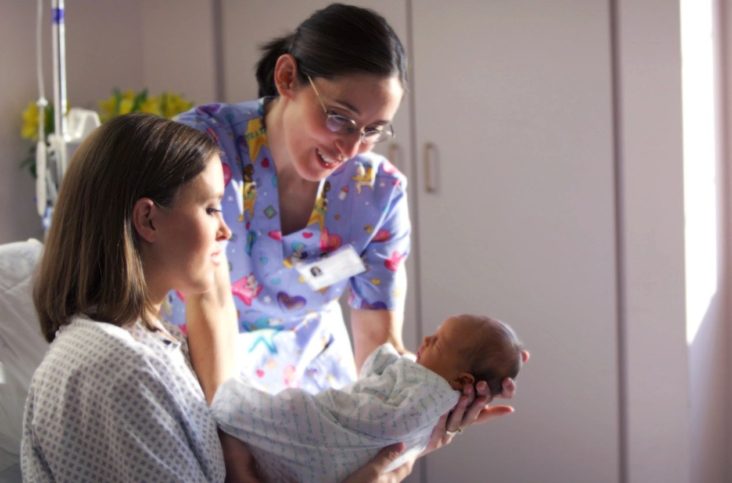Unborn baby’s high birth defect risk is the focus of this Women’s Telehealth patient story.
This Pregnancy’s Challenge: In a prior pregnancy, prenatal tests indicated positive results for Downs Syndrome for this mom-to-be. Fortunately, this proved not to be the case and her baby was indeed born healthy. However, with the next/current pregnancy, the patient was extremely worried when “Quad Test” results [deleted: during her current pregnancy] reflected a 1:56 risk for Trisomy 18 and the ultrasound conducted at the local hospital was inconclusive.
Trisomy 18, also known as Edwards Syndrome, is similar to Downs Syndrome, as they are both caused by a chromosome abnormality. Unlike Downs Syndrome however, Edwards Syndrome is potentially more life-threatening during the neonatal period and early life. It was very important that the mother and unborn child receive high-risk OB Specialist care.
The Team’s Actions: Because there were no MFM Specialists in the patient’s community and it was over an hour drive to the closest one in Albany, GA, the patient opted for MFM care via telemedicine through Women’s Telehealth based in Atlanta. WT was able to offer the patient in-depth evaluation and consultations via telemedicine directly from her local OB physician’s office.
- The patient declined amniocentesis, a procedure whereby amniotic fluid is collected for detailed diagnostic testing and at the time, free cell DNA testing via maternal blood was not available.
- Advanced, serial “live” ultrasound imaging for fetal growth and well-being was performed.
- WT conducted regular MFM physician consultations to monitor the baby’s development.
- A co-management plan was developed between the WT MFM specialist and local OB/GYN.
The Results:
- High risk monitoring continued to show no abnormalities and a healthy baby was born!
- The family saved an est. $500 in travel expenses, not going to and from the home to Atlanta, $2000 out of pocket hospital facility fees, and over 28 hrs of commuting time.
WT’s progressive telemedicine capability, providing the right specialist at the right time, supported the patient safely through an uncertain, emotional journey. In this case, the WT team was able to allay the patient’s concerns and celebrate a positive outcome!
. . . . . . . . . . . . . . . . . . . . . . . . . . . . . . . . . . . . . . . . . . . . . . . . . . . . . . . . . . . . . . . . . . . . . . .
Birth defects are a common, critical and costly condition affecting 1 in every 33 babies born in the U.S. each year.* For more information about birth defect stats, prevention, diagnosis and aftercare, visit: https://www.cdc.gov/ncbddd/birthdefects/facts.html
*Centers for Disease Control and Prevention. Update on Overall Prevalence of Major Birth Defects–Atlanta, Georgia, 1978-2005. MMWR Morb Mortal Wkly Rep. 2008;57(1):1-5.
. . . . . . . . . . . . . . . . . . . . . . . . . . . . . . . . . . . . . . . . . . . . . . . . . . . . . . . . . . . . . . . . . . . . . . .
Our goal in sharing patient stories is to show the role and possibilities Women’s Telehealth plays in accessing and intervening in high risk pregnancies. We help turn patient and OB provider concern into the best possible care plans and outcomes for mom and their babies.
For more information, call our office at: 404.478.3017


